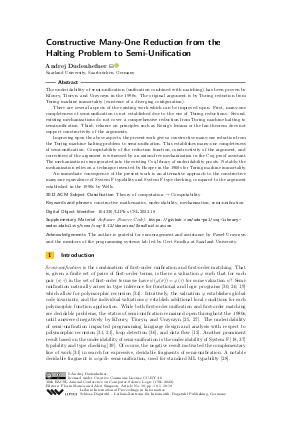LIPIcs.CSL.2022.18.pdf
- Filesize: 0.79 MB
- 19 pages

 Creative Commons Attribution 4.0 International license
Creative Commons Attribution 4.0 International license






Feedback for Dagstuhl Publishing